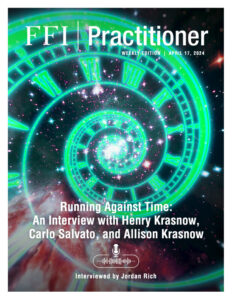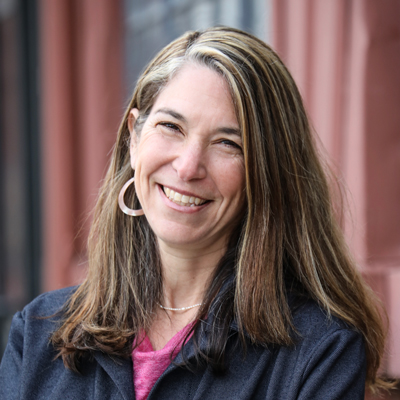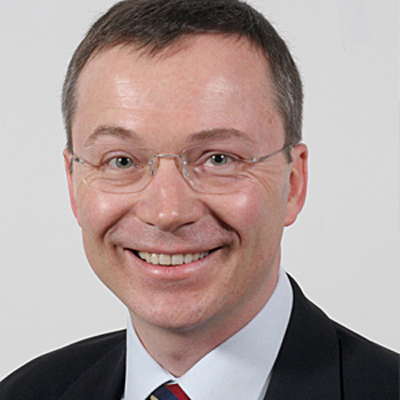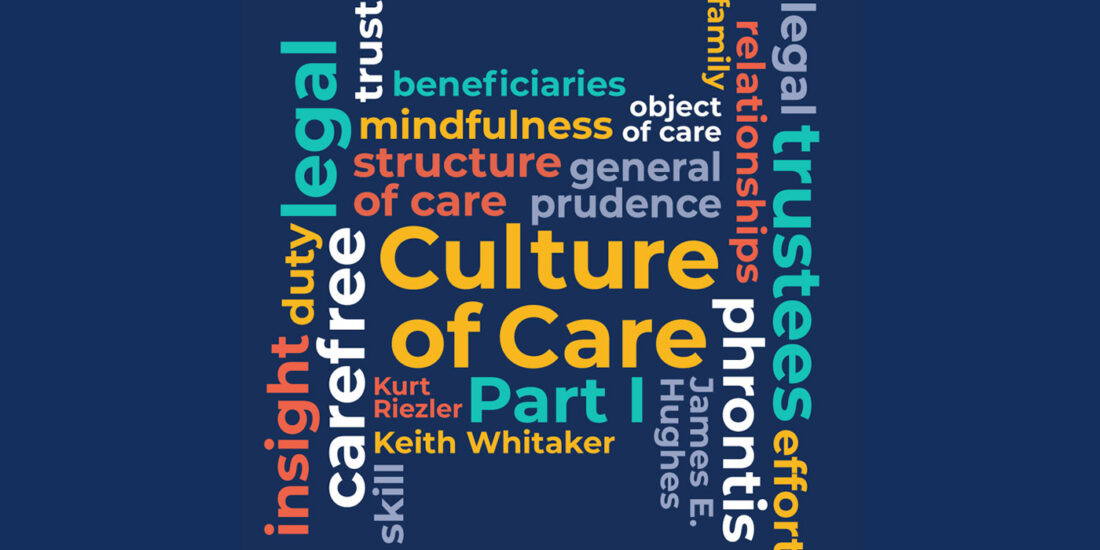
View this edition in our enhanced digital edition format with supporting visual insight and information.
Running against time—we’ve all done it! In this podcast, three marathon runners explore how time, discipline, generational pulls, and much more play out when running a race. Today’s conversation also observes on how these characteristics exhibit themselves in the timing of activities, decisions, and emotional dynamics in a multi-generational family enterprise. And, not too coincidentally, this podcast is presented the same week that the 128th Boston Marathon was run! Boston’s is world’s oldest annual marathon, founded in 1897. Thanks to FFI Fellows Henry Krasnow and Carlo Salvato, and to Allison Krasnow, a next gen who inspired her father’s running career, for participating in this podcast. And to our interviewer, Jordan Rich, who has covered more than 20 Boston Marathons!
Are you a runner and want to tell your story to our family enterprise readers? Just email ffipractitioner@ffi.org and we’ll see if we can “run” another issue!
Podcast Transcript
Jordan Rich (JR): Welcome to today’s FFI Practitioner. This is Jordan Rich. Today, three marathon runners who are also connect to FFI and family enterprise. We believe you’ll find this podcast thought-provoking and informative, proving personal insights, lessons learned, and some rather amazing research on the mind-body connection. It’s the third entry in the April series on Time, the 2024 conference theme. Our three participants are Carlo Salvato from Bocconi University in Italy—he’s an ultra-marathon runner; Allison Krasnow, a long-distance triathlon athlete and high school principal in California; she’s also the daughter of our third participant, Henry Krasnow, who has run the Chicago Marathon. Henry, let me start with you. What’s your running history here? I understand you got into this because someone influenced you.
Henry Krasnow (HK): That’s right. [My daughter] Allison was running in the Chicago Marathon, and I was watching it with several friends. And one of them was amazed to the point that it bothered me, at how incredible it was that everybody could do this. He just kept carrying on and carrying on to the point where I got a little frustrated, I’m not quite sure why. I said, “Well, this isn’t as hard as being a professional athlete. You know, there’s only a thousand people who’ve played for professional baseball, and 20,000 people are [running this marathon] today, 30,000 do it in Boston, and 40,000 do it in New York. It just can’t be all that hard.” He then reiterated his feeling, and I said, “Well, all right, if that’s what you feel about it, I’ll run it next year with my daughter.” And at the time, quite honestly, I could not have run a mile.
JR: Henry, you told me you teamed up with another gentleman who had experience in this area. You had a chance to train and learn from somebody who had done it.
HK: Maybe I was educating myself more than I understood. I met the guy decades ago, he and I are still friendly, and he’s probably 20 years younger than I am. We actually ran through the winter, and then in the spring, we started doing the various 5Ks and 10Ks and I may have done a half marathon, and then, [Allison] came to Chicago, and I did it much to my satisfaction, and somewhat surprise.
JR: So Allison, what do you think of your dad following literally in your footsteps for a 26.2-mile run? That’s pretty impressive, isn’t it?
Allison Krasnow (AK): It was a really meaningful experience. I was so happy that we were able to do it together. In fact, actually, my brother joined us for a small part of it at the end. He also isn’t a runner, though he is an athlete, and he was able to just jump into the race for a few miles in the middle and run with us. It was really exciting. I had run previous marathons, but I also got into it in a serendipitous way. It was neat to have gotten into running at an older age, and then for my dad to have seen me do it and said, “I want to do that with you,” and to actually pull it off and make it happen. Because I didn’t live in Chicago at the time, there was a lot of planning and logistics involved just to make it happen. It was a really special experience to be able to do it together.
JR: Usually it’s the child who wants to do what the dad or mom is doing, but it worked the other way here, and that’s a great story. Let me ask Carlo to comment. Carlo, you told me that you are an ultra-marathoner. What does that mean?
Carlo Salvato (CS): It means that you run distances that are longer than a marathon. It’s easier to hide the fact that you’re slow [if you] run ultra-marathons up in the mountains, [which is] called ultra trail running, where no one really runs fast. I’m not a fast runner to be honest. That’s what I really like. And [the trails] are in nature. You’re running [through] beautiful landscapes such as the Dolomites, Mont Blanc, or beautiful lakes like Lago Maggiore in Italy. They’re really fabulous. Sometimes you can even have some more time to talk to people and engage with people along the trail. So this is what I really like in ultra trail running.
JR: With your experience in running, has this helped you in terms of your business acumen, your ability to be a good leader? And how has it affected your family? Oftentimes you’re running and you’re not around for a while, but tell me a little bit about the impact of this discipline—and I’ll ask all three of our guests about this—on your professional life.
CS: Thank you very much. This is a great question. First of all, it’s very important because you spend a lot of time outside of home, far from your family. However, they are very proud of you when you do this. Although, as I said, I’m not really strong, I always managed to finish. But the training, this stubbornness, the resilience that you need to develop, [they become] very relevant in your life. Resilience in running can be transferred [to] resilience in working—for example, working long hours or addressing difficult problems, and continuing, insisting until you find a solution. That’s very important. I believe that this is a central skill that you learn in marathons and ultra-marathons. Second, especially in trail running, rule number one is that you help each other. So if there is someone who is on the track and you see that they have some problems, you stop, wait until they are better, or until someone comes and [helps] them, regardless of whether you were running your best ultra-marathon ever. So [it reinforces the importance of] helping each other. In relation to my family, it is true that I have to spend a long time outside of home. But I always go [to the trails] with my wife, so we spend beautiful weekends up in the mountains. And second, my four children are very proud of me. They are always connected to what I’m doing. They follow me on the track with the GPS. And when I’m back, they’re super happy and proud of their dad, although typically I do not score very well! But I always finish, [I’ve] never [withdrawn] from any marathons so far.
JR: Let me go back to Henry to get a similar sense of how this particular goal that you’ve achieved—and you’re doing it with your daughter on occasion in the past—how this affects you, in terms of how you run your family business and how you advise clients.
HK: Let me just add one other thing. Allison has been an endurance athlete. She did a whole bunch of Ironman [events], triathlons, and so forth. That may or may not enter into it, but I just want you to know that. The best story I can tell about a life lesson is that she and I were once visiting a friend who had a summer house. The way I recall it is we were running, it was a hot day, and we were running on a road that went through the cornfield. I remember being absolutely exhausted, and I said, “How can you do this?” She just looked at me and said, “You just keep going.”
I’ve remembered that through, it must have been 30 years ago. That’s sort of the same life lesson that Carlo said. It’s hard to know exactly how it translates into anything in specific, but it’s real clear that any success in life is really based upon “You just keep going,” because everybody has these same hardships and life is sort of an adventure. I mean, I don’t want to get too philosophical, but everybody has low points, and you have to learn to keep going.
JR: Allison, in your role as a leader in education, what impact does reaching the goal, the finish line, have not only on you, but on your students?
AK: One way for sure is it’s helped students realize that life’s not about winning. Like Carlo said, I echo a lot of his sentiments. I was a really strong athlete and a really good athlete, but at very long-distance events. And so doing that means that you don’t have to be the fastest. There’s a lot of other things that come into play [to be] able to do really long-distance events and complete them, [but] even with really competitive times, it’s not about who’s the fastest in every moment. I think that a lot of students, and my own children have [seen] that it’s just not about winning. You might [have] come in 3,049th place overall and [have] accomplished more than you ever thought that you could accomplish. I’d say that’s one of the biggest lessons when I share the [experience of the] kind of athlete that I am, an endurance athlete. Even at points in time when I was quite competitive, I’ve won some money in races, and students assume [I] won, because [I] won the race and [I have] to explain, “No, I didn’t actually at all.” That’s been a real lesson [about how] it’s not just about being the very best compared to everyone else, but there’s a lot more to it that sticks with you for life. I was a teacher for many, many years, when I was doing these events. I would bring back these stories, and a lot of the stories are [about] how I kept going when something was incredibly, incredibly hard in the race, and what mentally made me able to do that. Those are the biggest lessons that I imparted on students that I work with.
JR: Carlo, here’s a question to raise, with you and everyone. It’s an individual goal to run a marathon, to complete it, but it takes a lot of people to make the event successful and safe. We were talking off-air about your kids, who didn’t necessarily follow in your footsteps. But let’s talk a little bit about the understanding that, when you’re doing the kind of work all three of you are doing, you appreciate the supporters, those giving the water along the way, those [who are] timing, those helping with whatever. Talk a little bit about that and why it’s so critical and helpful to learn about that kind of thing.
CS: I’ve always been astonished by the passion and the commitment that some of these people that help throughout these events put into making it successful. This happens a lot in marathons. There is a huge organization around it, like handing water, handing bibs, and everything. In ultra trail running, it’s even more so, because the organization is even larger. You have people handing you water at 2,500 meters, maybe in the snow during the night. And that’s really hard. It’s not like being [out] on a nice spring day in Milan or in Boston. It’s really, really tough. They spend the night in the chill. And when you arrive, they actually cheer for you, support you, want to check that everything is okay with you. I hope that I will be able to keep running these events for a long time, but when I stop, I will start doing the same—helping with the organization. They are not paid, none of them [are] paid. Only a few of them are professionals. But hundreds of them are just there for the fun of it, for the beauty of the event, and for this communal feeling that you have in this event. I really appreciate that. And I appreciate support from people along the street or along the track. Sometimes it’s amazing, how just one single word [can] help you continue and finish. Sometimes just one single word, someone who tells you, “You dreamt it, now do it.” And on your 30th kilometer, and when I was going to stop, I remember one day, one of my first ultra trails, there were these two guys about my age. And I said, “Where is it that you can withdraw? Which way to withdraw?” [They responded,] “What? You don’t withdraw with us. Just follow us, we will be together at the end,” and we made it. It’s really amazing, this feeling. It helps you understand how important it is to be together in this type of endeavor. No one is left behind.
JR: How is it that something like this, and it’s not just running, it’s not just athletics, but something special about an individual outside of the office, how does this really impact the younger generation, and should all family businesses consider stepping out of the box a little bit and doing something? Henry, your thoughts on that?
HK: I want to go back to something else [that was] said, which is that winning isn’t the point. And just as an aside, people will ask me, what was your time? And I have often said something of a joke, which is by the time I finished the winner was on his way back to Ethiopia, or Kenya or wherever it was, and he’s already in a plane. But I think that’s an important point, which is that the issue with all of that, unless you’re a world class athlete, is not the time but the fact that you did it. In terms of my life at least, I think one of the life lessons is that the chances are overwhelming [that] you’re not going to be the best with a family business, or the richest, but that you’re going to just solve the problems as best you can, not look up at the people who have done better, but just do the best you can. That sounds defeatist, but the reality is very few people are the best. And I suppose that would be my speech, were I dealing with younger people. It’s hard for me, my next generation are already in their 50s. And my grandchildren are relatively far away, so I don’t get to seem very often. And to be honest, I think it’s hard for me to translate it directly into family businesses, because I think we all agreed the two life lessons are just keep going and be proud of yourself for finishing without [worrying] about whether you were the best. I mean, I see the problems of family businesses [as] to make sure that not only is the business successful, but the family gets along, because some of them are involved in management and many are not. And there’s [often going to] be a tension between those two groups.
JR: Allison, your dad is very proud of you, and you’re very proud of him. And if nothing else, this story, this personal story might inspire other listeners to the podcast. It may not be a marathon you do together, but doing things together, complimenting one another, or patting another one on the back because of an accomplishment. It’s something you probably have taught many, many students along the way. Comment if you will on that prospect.
AK: I think there’s something very meaningful and special about setting goals with other people and then working to achieve them together. As I think about the next generation, I think there’s also something to be said about setting goals that are very far in the future. And then [asking,] “What should I be doing today to reach that goal that’s a year and a half away? What should I be doing in five weeks to reach that goal that’s a year and a half away?” I think that’s one of the biggest lessons to pass on to younger people about marathon running. In my case, it was doing Ironman triathlons as well. I think that is something I would love for all young people to take away from what one learns from running marathons. People often say to you, “Wow, how did you do it? That was such a long race.” And really, when you started the race, mostly you knew you were going to finish, but it’s because of what you did for the last year or the last two years that made you know [that you could finish]. The race is not nearly as hard as the training and the discipline that comes towards the training. There are so many lessons to be learned from that to pass through family business to the next generation in terms of setting goals for yourself, knowing you need other people with you to reach those goals, and also figuring out the discipline of, “What should I be doing today that will help me? What should I be doing six months from now? And how do I know that when that day comes, I’ll have met that goal in partnership with those who I’m working with, whether that’s my family and my relationships or people in my professional [life]?”
HK: If you look at the problems of a family business and you’ve got lots of people in management, I can’t help but think if I’m working on the line and my older brother is the vice president, or my cousin is the president, you’ve got to realize that getting to that position is a long-time goal. It’s not something that you can accomplish right away. And it’s not for something that you can expect to accomplish right away.
JR: Carlo, what’s your take on that very same question?
CS: I believe that being an entrepreneur is very difficult and you need training. The road sometimes is rough, sometimes it’s very difficult. And what you can learn from marathons is exactly that. When you’re tired, you can still do a lot. There are some studies that say, from the Navy SEALs I believe, that when your mind tells you that you’re done, that you must stop, actually your body is only [at] 40% of its capacity. So, you have to train your mind to tell your body that you can do more. This can happen in many situations that entrepreneurs are facing in relation to personal interactions within and outside the company, competitors, difficulties of many different kinds. Facing issues in sports helps a lot, because you need to understand that if you want to reach a result, you need to train for that. Some families find ways of doing it. For instance, I know family firms that organize an adventure trip every year with some rules to make it tougher: no cell phones, just one for safety, no credit cards, we all sleep in the tent, we eat what you have. Learning how sometimes life is tough, it’s difficult, but you can make it if you’re trained, and if you are patient and resilient. I believe that this is what marathons, ultra trail running, [and] several other activities and initiatives that entrepreneurial families can come up with can actually help [the] next generation to develop all these features and qualities.
JR: Thank you to our three podcast guests. We wish you best of luck in future marathons! And we hope you will use this podcast as a conversation starter—a conversation with yourself, your colleagues, your family, or your clients. To learn more about this and other topics, visit ffipractitioner.org. This is Jordan Rich. Thank you, as always, for listening.
About the Contributors

Allison Krasnow is an assistant principal at Alameda High School in Alameda, California. With over 20 years of experience in K-12 public education, Allison is a Nationally Board Certified Teacher in adolescent mathematics and an experienced school and district leader. She is finishing her EdD in Educational Leadership this spring, which has been harder than any marathon she has ever run. She can be reached at krasnow.allison@gmail.com.

Henry Krasnow, FFI Fellow, is a business lawyer who develops strategies designed for entrepreneurial, family, and privately held businesses. He is the author of the book Your Lawyer: An Owner’s Manual and is the 2003 recipient of the FFI Interdisciplinary Award and a past chair of the FFI Practitioner Editorial Committee. He can be reached at henrykrasnow1@gmail.com.

Carlo Salvato, FFI Fellow, is professor of business strategy and a fellow of ICRIOS Research Center at Bocconi University in Milan, Italy. Currently the FFI GEN Faculty Chair, Carlo has served as an associate editor of the Family Business Review (FBR) and has published widely in the field. His current research focus is on organizational capabilities, with an empirical focus on family firms. He can be reached at carlo.salvato@unibocconi.it.
Interviewer: Jordan Rich is celebrating a quarter century at one of America’s top legacy radio stations, interviewing thousands of celebrities, authors, actors and interesting personalities throughout his career. Jordan is co-owner of Chart Productions Inc, and also teaches voice-over acting. His main focus these days is in podcast creation and production, featuring conversations with the world’s most creative people.

View this edition in our enhanced digital edition format with supporting visual insight and information.





